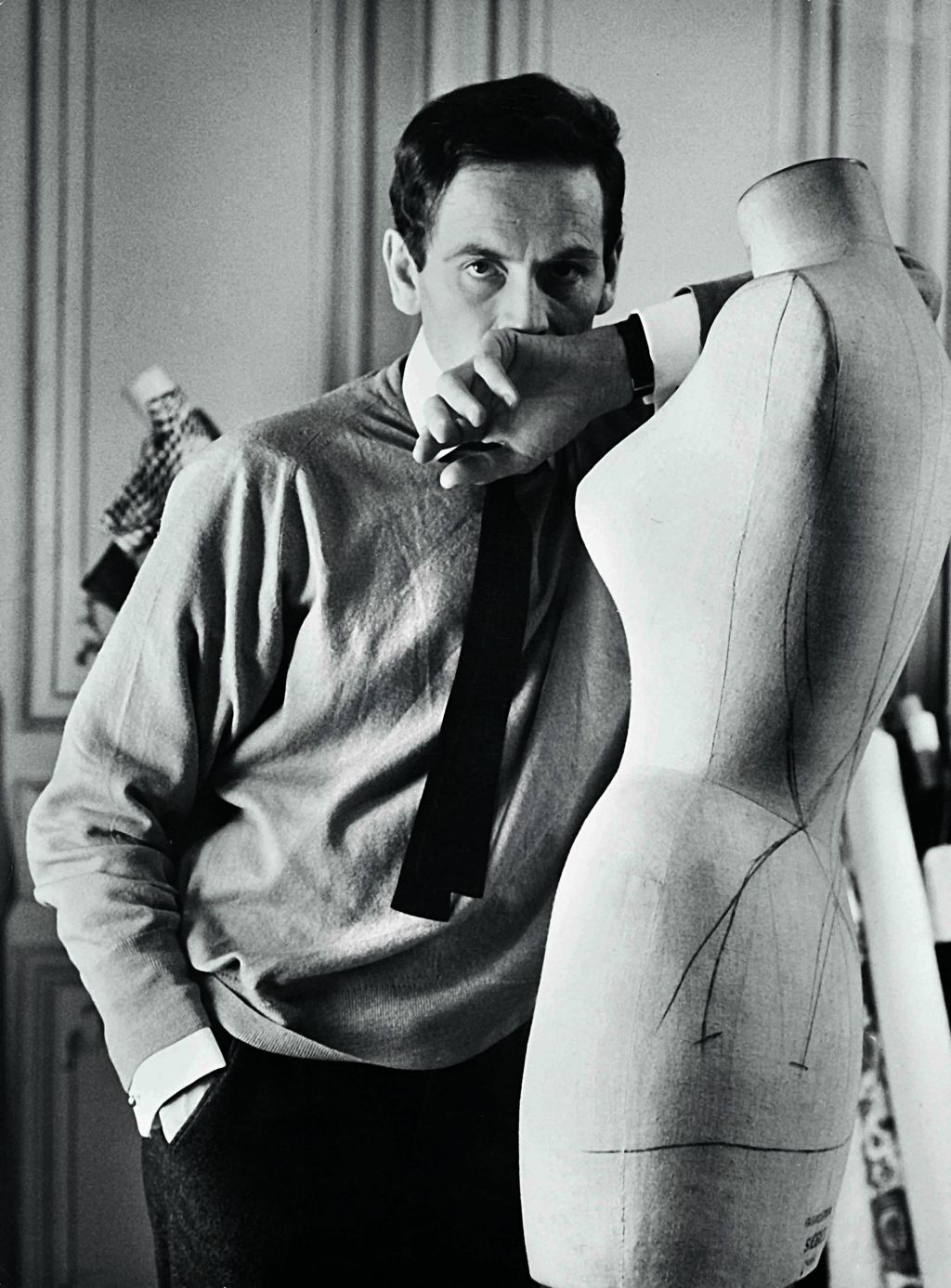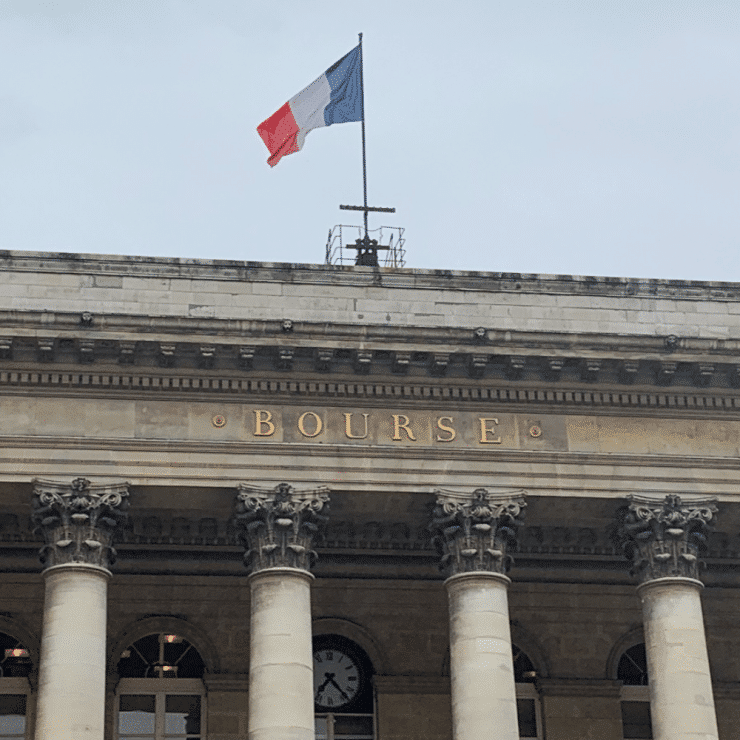[vc_row njt-role-user-roles=”administrator,armember”][vc_column][vc_column_text]
This Tuesday 20 December, the world of haute couture is in mourning. The famous French couturier died this morning at the age of 98 in the American hospital of Neuilly-sur-Seine.
The visionary, avant-garde and innovative designer, known for his creations with a futuristic spirit, represented the last couturier associated with the fashion of the 1960s.
He liked to repeat “I am the only free name in fashion. Since the 1950s, I have remained Pierre Cardin from A to Z. All the others have either died or passed into other hands”.
A pioneer in haute couture for 70 years, he was undoubtedly an emblematic figure in the world of ready-to-wear. He began his career with costume designs such as those for Jean Cocteau’s film “La Belle et la Bête” and worked with great designers such as Elsa Schiaparelli and Christian Dior. Pierre Cardin never hesitates to recall the positive effects of these collaborations in his career.
“I was lucky enough to work with Jean Cocteau, Christian Bérard, Max Ophüls, Christian Dior, Jean Delannoy, all the greats in short. I had masters who gave me the strength to exist through my originality, my personality,” he confided to Reuters in February.
His career really began when he created his own company in 1950, and he presented his first collection three years later with the “bubble dress” which was all the rage. He then opened two boutiques, Eve and Adam, each dedicated to women’s and men’s fashion respectively.
To be the first, the one and only, such was Pierre Cardin’s philosophy of life. He was also the first to be successful for his experimental and futuristic fashion in the 1960s. He thus built his reputation as an actor of the future of fashion, alongside Paco Rabanne and André Courrèges.
It was in 1960 that Pierre Cardin went into business and began licensing and franchising agreements, making his name a famous trademark. He was the first to develop this type of policy in the world of luxury goods and he would go on to become the leading man in terms of the number of licences (850) and sales.
However, his licensing system and the extension of his empire failed him, his image and that of his house deteriorated and he lost the confidence of his peers, judging it to be little in line with the idea of couture or luxury. The diversification of his brand could thus go from textiles to tableware, lighters, plastic bags or mineral water.
Provocative, ambitious and a lover of the arts but not of modest success, he does what he likes and what seems good to him.
In 1958, he thus armed himself with young student boys with an advantageous physique to ensure his parade in the salons of the Crillon, and thus became the first to parade the man.
In 1959, he decided to put aside haute couture to devote himself to ready-to-wear, which was more accessible. “To create clothes that dressed both the Duchess of Windsor and the concierges. »
His empire also extends into real estate. In 1970, he bought the ambassadors’ theatre, which later became the Espace Pierre Cardin, then Maxim’s and the Marquis de Sade’s castle in Lacoste, in the Luberon. He then created the Pierre Cardin gallery in Paris and the Théâtre de la Mer in Théoule-sur-mer. Today, about fifty houses belonging to him can be listed.
In 1974, he was one of the first couturiers to appear on the front page of the famous American magazine Time, where he posed shirtless, wearing only a homemade towel around his waist and socks. He is surrounded by an armchair and a silhouette mirror stamped Pierre Cardin. The example that sometimes a single image can be worth all the words in the world to describe a personality.
The creator liked to be noticed, he liked to be different and therefore went voluntarily against the grain, even if it meant alienating his colleagues. He was a personality who could not be like everyone else to such an extent that his name alone embodies the very opposite of the word “banal”. He was a supporter of the fashion revolution and against any elitist sphere.
“Houses like Hermès are very beautiful. There is a luxury of money but no creation”.
His exuberant and daring personality inevitably stood out in his creations and collections, which were made with unusual materials, such as vinyl waders, chimney collars, three-hole dresses in thermoformed fabric, unisex cosmonaut suits, lantern sheaths, satellite hats, target tunics or hoop skirts.
All of this is presented through fashion shows, each more original than the last. Who doesn’t know his famous parade from Red Square to Moscow or the one held in the middle of the Gobi Desert in 2007 ? Even after his shows had stopped, the fashion lover continued to organise shows in his various properties.
Today, the fashion world must therefore reluctantly bid farewell to the man who revolutionised it and turned it into a work of art. The tributes since the announcement of this news this morning are multiplying, which says a lot about the journey of the man with such exceptional talent.
“He did extravagant, extraordinary things that were totally new. It was total invention, his fashion,” says Chantal Thomas.
“It’s an extremely sad moment because Pierre Cardin is a visionary, someone who anticipated what today’s fashion is”. according to Jean-Charles de Castelbajac.
He invented ready-to-wear by having women’s ready-to-wear fashion shows at Galeries Lafayette and Printemps (…) And then a great couturier would design a ready-to-wear collection in a department store. People were furious with him. It was a gigantic scandal. Then he threw the man out,” says Ralph Toledano.
“He was a man who moved mountains and had a kind of fabulous creative and inventive audacity,” continues Jack Lang.
Read also > PARIS DESIGN WEEK 2020: THE MUST-ATTEND EVENT OF THE BACK-TO-SCHOOL SEASON
Featured Photo : © Pierre Cardin[/vc_column_text][/vc_column][/vc_row]








